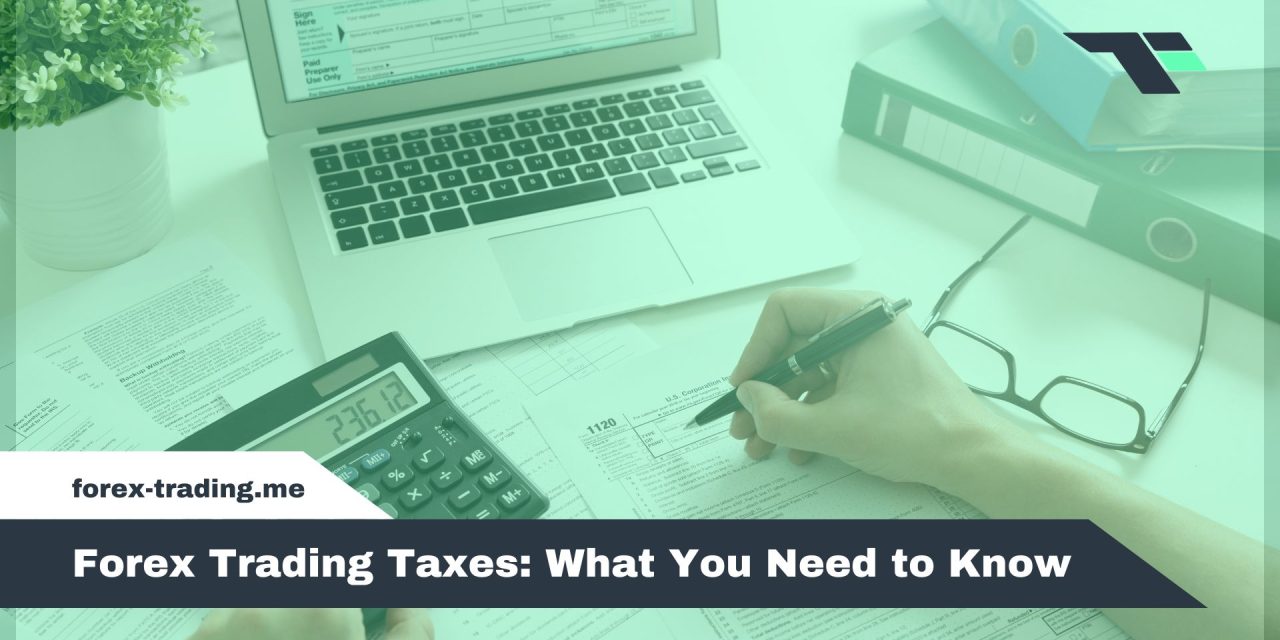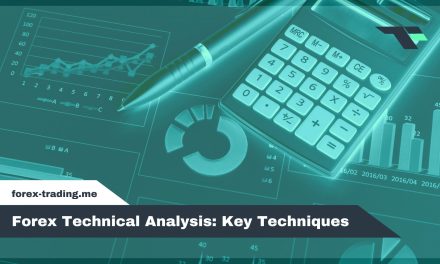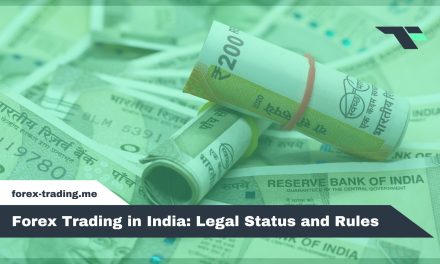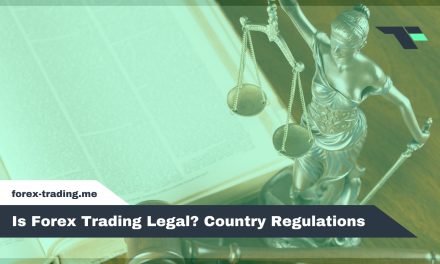
Forex Trading Taxes: What You Need to Know

Forex trading profits are taxable in most jurisdictions, with tax treatment varying by trader classification and local regulations. In the U.S., retail traders typically face capital gains taxes, while professional traders may elect mark-to-market accounting and deduct business expenses. Tax rates depend on whether gains qualify as ordinary income or capital gains, with Section 1256 contracts receiving favorable 60/40 treatment and Section 988 gains taxed at marginal rates. Understanding these distinctions helps traders optimize their tax strategies.
Table of Contents
Understanding Forex Trading Taxes
Forex trading taxes apply to profits generated from currency exchange transactions, with the specific tax treatment varying considerably based on jurisdiction and trader classification. The calculation typically involves determining net profit by subtracting total losses and allowable expenses from total gains within a tax year. Tax authorities generally classify these profits either as ordinary income subject to regular income tax rates or as capital gains eligible for potentially more favorable tax treatment, depending on factors such as trading frequency, holding periods, and whether the trader qualifies as a professional or casual investor.
What is tax on forex trading and how is it calculated?
When traders generate profits from currency exchange transactions, these gains typically constitute taxable income under most national tax codes, requiring careful calculation and reporting to guarantee compliance. Tax authorities generally treat forex profits as ordinary income or capital gains, depending on the trader’s classification and local regulations.
The standard calculation follows a straightforward formula: taxable gain equals gross proceeds minus cost basis minus allowable expenses. Gross proceeds represent the total amount received from closing profitable positions, while cost basis includes the initial investment amount. Allowable expenses encompass legitimate trading costs such as broker commissions, platform subscription fees, and interest charges on margin accounts.
Traders must maintain detailed records of all transactions, including entry and exit prices, dates, and associated costs to accurately determine their tax liability and support their calculations during potential audits.
Are forex trading gains taxed as capital gains or ordinary income?
How trading gains receive tax treatment depends fundamentally on the trader’s classification and the specific financial instruments involved, creating vastly different tax obligations across jurisdictions. In the United States, Section 1256 contracts receive favorable 60/40 capital gains treatment, while Section 988 ordinary income classification subjects gains to marginal tax rates.
The U.K. approach differs markedly, with HMRC treating spot foreign exchange as miscellaneous income, typically taxed at standard income rates rather than capital gains rates. Professional traders often face ordinary income classification regardless of jurisdiction, while casual traders may qualify for capital gains treatment. These distinctions create substantial differences in effective tax rates, making proper classification essential for accurate tax planning and compliance strategies.
Retail vs Professional Traders: Who Pays Forex Taxes?
The Internal Revenue Service distinguishes between retail forex traders and professional traders based on specific criteria that considerably impact tax obligations and available deductions. Professional traders who qualify under IRS guidelines can elect mark-to-market accounting treatment, deduct business expenses like home office costs and equipment, and treat their trading activities as a business for tax purposes. Retail traders, conversely, face more restrictive tax rules with limited deduction opportunities and must generally report gains and losses as capital transactions subject to standard capital gains treatment.
How do professional and retail forex traders differ for tax purposes?
Although both retail investors and professional traders engage in forex transactions, the Internal Revenue Service applies distinctly different tax frameworks based on specific criteria that determine trading status. The IRS evaluates frequency of transactions, volume of trades, and intent to profit from short-term market swings to distinguish between casual investors and traders in securities.
Professional traders meeting these criteria can report gains and losses on Schedule C as business income, deduct trading-related expenses, and elect Section 475(f) mark-to-market accounting. This election allows traders to treat all positions as ordinary income rather than capital gains, eliminating the wash sale rule restrictions.
Retail traders typically report forex gains as capital gains on Schedule D, subject to hobby loss rules that limit deduction capabilities and require different documentation standards.
Do You Pay Tax on Forex Trading Profits? A Global Guide
Forex trading profits are generally subject to taxation in most countries, though the specific rules, rates, and reporting requirements vary greatly across jurisdictions. Traders must understand their local tax obligations whether they operate as retail investors or professional traders, as misclassification can lead to penalties and unexpected tax liabilities. International traders face additional complexity when maneuvering through multiple tax systems, particularly when dealing with U.S. IRS reporting requirements that may apply regardless of their primary residence.
Do you pay tax on forex trading profits in your country?
Where traders conduct their forex activities determines the specific tax obligations they face, as each country maintains distinct regulations governing currency trading profits. In Australia, the Australian Taxation Office treats forex gains as capital gains tax events, offering a 50% discount for positions held longer than twelve months. Canadian traders encounter a dual classification system where the Canada Revenue Agency categorizes gains as either business income or capital gains, depending primarily on trading frequency and professional intent.
These jurisdictional differences highlight the importance of understanding local tax thresholds and reporting requirements. Traders should consult current regulations in their specific country, as tax laws evolve regularly and individual circumstances may affect classification. Professional tax advice guarantees compliance with local obligations while optimizing after-tax returns.
How do international forex traders comply with U.S. IRS reporting rules?
International forex traders operating outside the United States face specific IRS compliance requirements when their trading activities create connections to U.S. tax jurisdiction. Non-U.S. residents must use Form W-8BEN to certify their foreign status, which prevents withholding on Section 1256 gains when no effectively connected income exists. Traders electing Section 988 or Section 1256 treatment must submit annual elections by March 15 to establish proper tax classification.
Those using U.S.-based brokers may trigger reporting obligations regardless of residency status. The Section 1256 election treats forex gains as 60% long-term and 40% short-term capital gains, providing favorable tax rates. International traders should carefully evaluate whether U.S. tax elections benefit their overall tax situation before making binding commitments.
U.S. Tax Rules for Forex Traders
U.S. forex traders face two primary tax classification systems that determine how their trading profits and losses are treated for federal income tax purposes. Section 988 treats forex gains as ordinary income subject to marginal tax rates, while Section 1256 provides more favorable treatment by applying a 60% long-term and 40% short-term capital gains split. The classification affects both tax liability and reporting requirements, as traders must use different IRS forms depending on which section applies to their specific trading activities.
What’s the difference between Section 988 and Section 1256 for U.S. forex traders?
When forex traders in the United States calculate their tax obligations, they must navigate between two distinct tax code provisions that treat currency gains and losses dramatically differently. Section 988 governs foreign exchange transactions as ordinary income or loss, taxed at regular income rates up to 37%. This default treatment doesn’t require mark-to-market accounting, allowing traders to realize gains and losses only when positions close. However, losses can be netted against other ordinary income without limitations.
Section 1256 offers more favorable treatment through automatic mark-to-market accounting, where all positions are considered closed at year-end regardless of actual status. This election provides the 60/40 capital gains mix, treating 60% as long-term capital gains and 40% as short-term, creating potentially lower effective tax rates for profitable traders.
Which tax forms do forex traders need to file?
Forex traders face varying IRS filing requirements depending on their tax treatment election and trading classification, with specific forms mandated for different scenarios. Traders electing Section 1256 treatment must file Form 6781 to report gains and losses on qualifying contracts. Those under Section 988 treatment have two options: retail traders typically use Form 8949 paired with Schedule D to report capital gains, while business-classified traders report directly on Schedule C as ordinary income or loss.
The choice between forms greatly impacts tax calculations, as Form 6781 enables the favorable 60/40 capital gains split, whereas Schedule C subjects profits to self-employment taxes. Traders must consistently apply their chosen method and maintain detailed records supporting their filing approach to satisfy IRS documentation requirements.
Managing Losses and Maximizing Deductions
Forex traders can deduct trading losses against gains and, in many cases, ordinary income, making proper loss management a critical component of tax planning. Strategic approaches such as utilizing tax-advantaged accounts, implementing loss harvesting techniques, and making appropriate entity elections can considerably reduce overall tax liability. Understanding these deduction opportunities and planning strategies enables traders to maximize their after-tax returns while maintaining full compliance with tax regulations.
Can I deduct forex trading losses on my tax return?
How extensively can traders offset their forex losses against other income? The answer depends on the tax classification of their trading activities. Under Section 988 treatment, forex losses are considered ordinary losses that can offset other ordinary income dollar-for-dollar, providing substantial tax relief. Traders using Section 1256 contracts can offset losses against the 60/40 capital gains structure, though with different limitations.
When forex losses exceed current year income, net operating loss carryover rules apply. Traders can typically carry these losses forward to offset future profits, though specific timeframes vary. The key advantage of ordinary loss treatment under Section 988 is the ability to deduct losses against wages, business income, and other ordinary sources, making it particularly valuable for active traders seeking immediate tax benefits.
What strategies can reduce my forex trading tax liability?
Strategic tax planning can transform a trader’s after-tax returns through careful timing, entity selection, and systematic loss management. Professional traders often establish LLCs or S-corporations to conduct their trading activities, which enables them to deduct business expenses such as software subscriptions, data feeds, and home office costs. These business structures also provide clearer documentation for trader tax status claims.
Tax-loss harvesting represents another powerful strategy, where traders systematically realize losses at year-end to offset taxable gains. Advanced traders may utilize futures contracts to defer income through rolling strategies, effectively shifting profits to subsequent tax years when beneficial.
Additionally, using tax-advantaged retirement accounts for longer-term currency positions can shelter gains from immediate taxation, though traders must carefully observe contribution limits and trading restrictions within these accounts.
Common Pitfalls and How to Avoid Them
Even experienced forex traders frequently make costly errors that can trigger IRS audits or result in unnecessary tax overpayments. The most common mistakes include underreporting small gains that accumulate over time, failing to properly account for foreign tax credits when trading through international brokers, and overlooking withholding tax obligations on certain transactions. These oversights often stem from the complexity of forex tax regulations and the mistaken belief that minor trading activities will go unnoticed by tax authorities.
Underreporting income and audit triggers
Many forex traders unknowingly trigger IRS audits by underreporting income or creating discrepancies that automated systems flag for review. High trading volumes without corresponding 1099 forms create red flags, as the IRS expects documentation matching reported gains. Traders who consistently report large losses year after year while maintaining trading activity attract scrutiny, particularly when losses seem disproportionate to income levels.
The absence of detailed trading logs compounds these issues, making it difficult to substantiate reported figures during examinations. Unreported gains from foreign brokers represent another significant audit trigger, especially when these amounts surface through international information sharing agreements. To minimize audit risk, traders must maintain thorough records, report all income accurately, and guarantee their trading patterns align with documented results and realistic expectations.
Overlooking foreign tax credits and withholding
Beyond audit concerns, forex traders frequently overlook opportunities to recover foreign taxes already withheld from their trading profits, creating an unnecessary drain on returns. When trading through foreign brokers or dealing with international currency pairs, withholding taxes may be automatically deducted at rates higher than necessary.
U.S. traders can file Form 1116 to claim foreign tax credits, preventing double taxation on the same income. Additionally, many countries have tax treaties that reduce withholding rates below standard levels. Traders should actively request refunds from foreign brokers when excessive taxes are withheld and maintain detailed records of all foreign tax payments. Understanding treaty rates and properly claiming credits can considerably improve after-tax trading returns.
Conclusion
Forex trading taxes represent a complex landscape requiring careful navigation based on trader classification, jurisdiction, and transaction types. Professional traders face different obligations than casual retail participants, with varying rates, deductions, and reporting requirements across global markets. Success demands understanding applicable tax frameworks, maintaining detailed records, and implementing compliant strategies. Traders who master these regulatory requirements can optimize after-tax returns while avoiding costly penalties through proper planning and documentation.

















